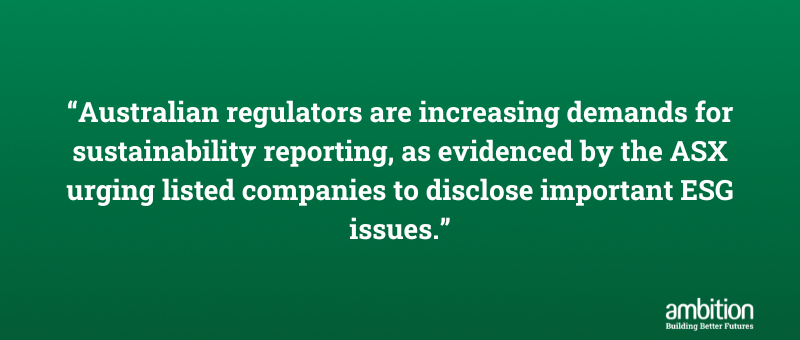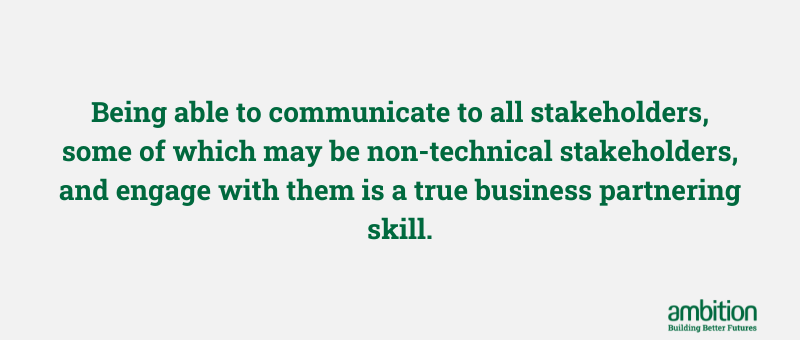Career insights with Ambition podcast
The podcast that dives deep into the defining moments of influential business leaders across technology, accounting and finance.

The podcast that dives deep into the defining moments of influential business leaders across technology, accounting and finance.

The podcast that dives deep into the defining moments of influential business leaders across technology, accounting and finance.

The podcast that dives deep into the defining moments of influential business leaders across technology, accounting and finance.



To thrive as an accountant in 2024, it's crucial to broaden your experience amid the rapid evolution of the accounting field. Accountants have shifted from focusing solely on number-crunching to emphasizing business partnering and stakeholder management. This trend continues to evolve, with increasing emphasis on AI and sustainability reporting and data analytics.
The landscape of accounting is evolving swiftly, driven by rapid technological advancements. It's evident that AI and machine learning will profoundly impact accounting roles in the future.
As AI gains momentum, it's crucial for accounting professionals to embrace these technologies as opportunities for career advancement rather than seeing them as threats to job security
There is a notable rise in demand for accounting professionals skilled in machine learning tools such as SQL, Alteryx, and Power BI.
Accountants can begin upskilling themselves with free online tutorials and courses that cover beginner to advanced levels in Power BI, Alteryx, and SQL. Numerous beginner-friendly courses are available to get you started.
Keep up to date with the latest features and techniques by reading blogs, joining webinars, and engaging in online communities focused on SQL, Alteryx, and Power BI.
This topic is increasingly important globally and mastering these reporting frameworks can provide substantial advantages as their importance grows.
Australian regulators are increasing demands for sustainability reporting, as evidenced by the ASX urging listed companies to disclose important ESG issues. Investors are now prioritising ESG factors, requiring clear and accurate disclosures in their decision-making processes.

To learn about ESG and sustainability reporting as an accountant in Australia, start by understanding their fundamentals and significance. Study frameworks, enrol in courses, review case studies, and seek opportunities in your workplace or through volunteer projects to apply your knowledge effectively.
Mastering data analytics involves effectively analysing and interpreting data using various tools and techniques, regardless of the specific software or platform. This includes skills like data cleaning, manipulation, statistical analysis, and data visualisation, applicable across different systems as needed.
As an accountant improving data analytics skills, focus on learning data types, cleaning methods, and basic statistics. Excel is essential for data manipulation, SQL for database queries, and tools like Power BI and Tableau for creating insightful data visualisations.
Soft skills have become extremely important for the accountant of today. The emphasis on business partnering has meant that your stakeholder management and relationship-building skills are paramount. Being able to communicate with all stakeholders, some of which may be non-technical stakeholders, and engage with them is a true business partnering skill.
Accountants looking to develop these skills will need to identify their key stakeholders and ensure they understand their needs and expectations. Transparency is key here so communicating with these stakeholders frequently about what is happening in the project will help to build that trust. When communicating, listen to their concerns so you can proactively resolve issues, and try to remove as much technical jargon as possible, so that the message is clear and concise.

The role of an accountant in 2024 has evolved and in order to get ahead you need more than just accountancy skills.
Seek out courses on machine learning tools such as SQL, Alteryx, and Power BI – there are plenty of free courses to get you started.
Gain experience on projects surrounding ESG and sustainability reporting. Research and study frameworks, build your knowledge and volunteer on projects to gain experience.
Learn data types and cleaning methods across data analytics tools. Excel for data manipulation, SQL for database queries and Power BI and Tableau for creating data visualizations.
Don’t forget the soft skills. Stakeholder management and clear communication with non-technical stakeholders are key to getting ahead in the future of accounting.
At Ambition, our specialised finance recruiters have their fingers on the pulse of the industry. To learn more about what employers want and potential technology shifts, or to discuss your next career move contact Yolande Maritz today.
Demystifying finance for non-financial stakeholders.
How to maximise your career opportunities.
5 helpful steps for a career move from Financial Accounting into an Analyst Role.
Author Yolande Maritz is the Divisional Lead of the Finance and Commercial team in Sydney. She started her career in 2009 and has recruited Accountants and qualified finance professionals in South Africa as well as the Sydney market.